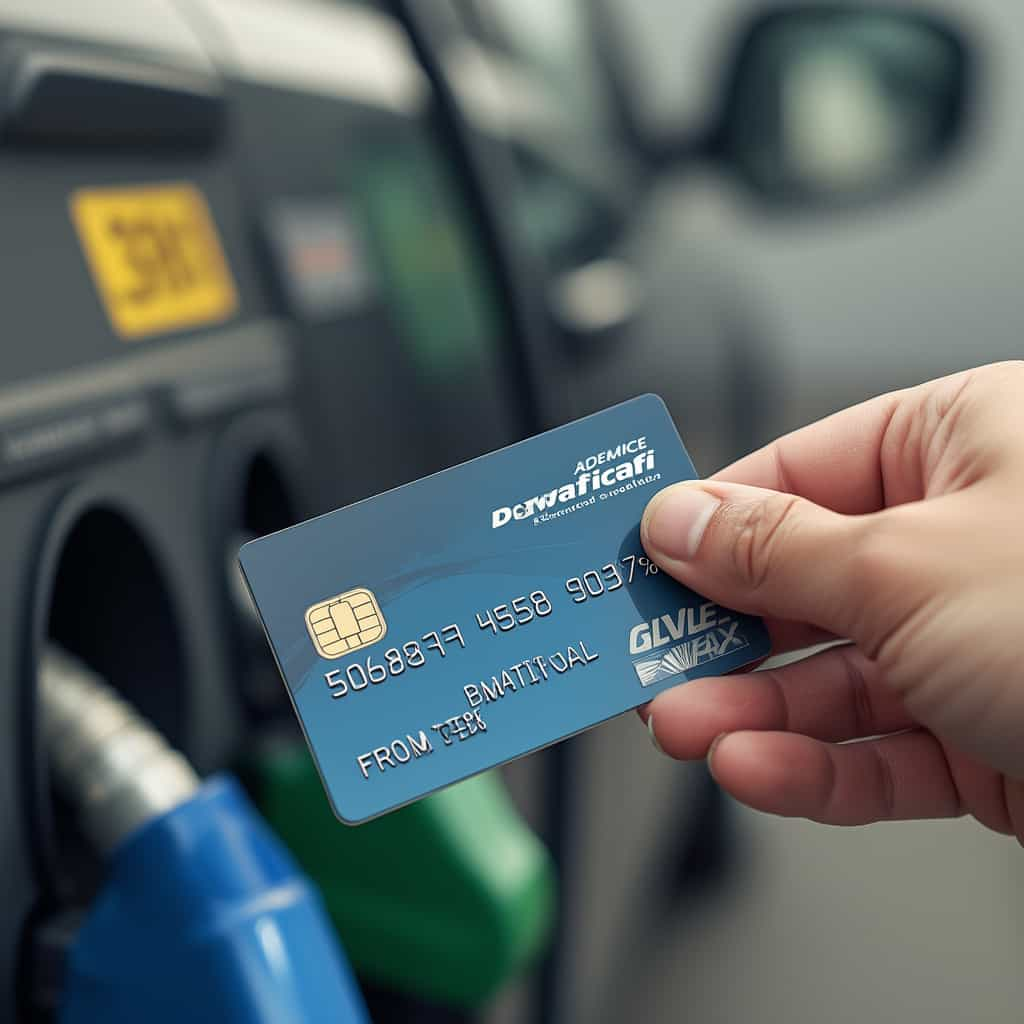Fuel cards have become an indispensable asset for businesses of all sizes, offering control over fuel expenses, improved record-keeping, and often, substantial savings. These cards function similarly to credit cards but are specifically designed for the purchase of fuel and related services. Yet, with a plethora of options available, selecting the right fuel card can feel overwhelming.
One of the main considerations when choosing a fuel card is the type of coverage and network access it provides. Fuel cards typically work with specific chains or multiple operators, which can impact convenience and cost-efficiency. Companies like Shell, BP, and ExxonMobil have established extensive networks that offer comprehensive fuel solutions. For example, the Shell Fleet Card provides access to thousands of fuel sites across the US, while BP’s Business Solutions Fuel Card offers a similar extent of availability with additional discount options.
When evaluating fuel cards, businesses must consider the type of fleet they operate. Heavy vehicle fleets may benefit more from cards offering discounts on diesel, like the cards provided by Chevron, which also include additional trucking-specific services. Meanwhile, businesses operating primarily in urban centers might prefer the flexibility and widespread acceptance of cards such as those offered by WEX, which can be used at virtually any fuel station.
Geographic location plays a crucial role in determining the best fuel card for a business. In the United States, different regions have varying fuel prices and subsequently, diverging offers from fuel card providers. For instance, in the Midwest, companies like Speedway offer competitive rates that cater to regional pricing. Businesses operating on the East Coast may find Sunoco’s fuel card particularly beneficial, given its vast network presence along the eastern seaboard.
Across the Atlantic, European companies must navigate a complex fuel card market where providers such as EuroShell and UTA offer solutions well-suited to operate across EU borders. These cards allow for VAT recovery services and toll integration, which can be crucial for companies frequently traversing national boundaries. GDPR considerations are also a significant factor in selecting providers within the EU, as data security forms a critical compliance component.
In Asia, the fuel card market is growing rapidly, with regional giants like Caltex and Petronas offering tailor-made solutions for local businesses. These options often include technology integration, allowing for enhanced tracking and reporting of fuel usage. This can be especially vital for businesses in logistics and delivery sectors where fuel cost is a significant portion of operational expenses.
Australia sees a distinct market with fuel card offerings from Caltex and Ampol, tailored for businesses dealing with remote logistics and transport across vast distances. Their cards typically provide extensive network coverage and focus on providing better fuel efficiency through strategic analytics and dedicated support systems.
A significant aspect businesses must consider when selecting a fuel card is the contract terms and conditions. Some cards may require long-term commitments or involve hidden fees that could unexpectedly balloon costs. For instance, certain providers might impose fees for card replacement or transaction processing, which can add undesired costs. It’s crucial for businesses to thoroughly read and understand the fine print of any fuel card agreement.
Experts frequently advise businesses to match their fuel card selection to their specific needs rather than opting for a one-size-fits-all solution. For instance, If a company values detailed expenditure reports, they might lean towards a card providing comprehensive analytics and reporting planes. Conversely, smaller firms focusing on straightforward discounts might benefit more from cards like those offered by U.S. Bank Voyager, which provide simple and transparent discount structures.
Given the dynamic nature of fuel markets, businesses should also look for flexibility in fuel card offers. A card providing consistent terms in a volatile market can be more valuable than one promising short-lived promotional discounts. As Dr. Emily Larson from the Transport Economic Institute notes, ‘The long-term value of a fuel card is determined not only by its immediate benefits but by its adaptability to changing market conditions.’ Leveraging expert insights and keen attention to contractual details can empower businesses to choose fuel cards that truly enhance their operational efficiency.
You may also like
Fuel Cards for Individuals: The Best Offers in the Market
Fuel cards for individuals provide a convenient and often cost-effective way to manage fuel expenses. This article explores the various proposals and subscriptions available, comparing the market’s most competitive offerings. It highlights regional variations and the best local deals from leading operators to help users choose a service without hidden surprises.
Buy of Electric and Hybrid Cars: Maximizing Range and Understanding Maintenance
As the market for electric and hybrid cars expands, understanding the nuances of their maintenance, warranty, and performance becomes crucial for prospective buyers. This article delves into the best options available, the significance of range, and how geographic adoption affects purchasing decisions.
Petrol and Diesel Car Purchases
Exploring the nuances of buying petrol and diesel cars, this comprehensive guide covers market trends, inspection tips, and the best resources available for making informed decisions. Highlighting regional purchasing patterns and expert opinions, this article aims to equip prospective buyers with essential knowledge for a secure investment.
Hybrid and Electric Cars: Auxiliary guarantees and Market Options
As the automotive industry pivots towards sustainability, hybrid and electric cars dominate discussions. This article delves into technical features, auxiliary guarantees, and market trends that potential buyers need to consider. A comprehensive comparison of current offers, along with geographical purchasing trends and advice on using specialized resources for informed decisions, is provided.
Thermal and Electric Motorcycles: Technical Landscape and Choosing What’s Best for You
Exploring the dynamics between thermal and electric motorcycles, this article delves into technical specifications, auxiliary guarantees, purchasing considerations, and market trends. It offers a comparison of different models and highlights key expert resources to assist buyers in making informed decisions.
